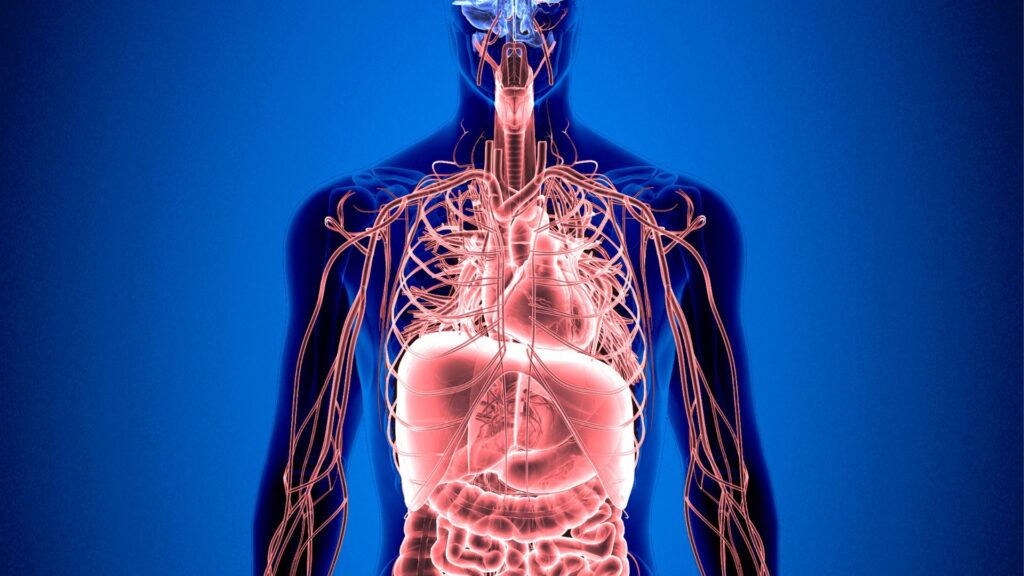
Metabolic waste refers to the stuff your body doesn’t need any more after it has used up food and oxygen to make energy and carry out other bodily functions. Imagine when you eat food, your body breaks it down to get the energy it needs to function, just like how a car needs fuel to run. However, just like a car produces exhaust gases when it burns fuel, your body also produces waste products as it uses up food and oxygen.
One of the main waste products is carbon dioxide, which you breathe out when you exhale. Your body also produces other wasteful and toxic substances like urea, which is a chemical made when your body breaks down proteins from the food you eat. Your kidneys filter urea and other waste products from your blood, and they end up in your pee. Other waste products can include substances such as ammonia, ketones, lactic acid, uric acid, bilirubin, acetaldehydes, and free radicals. So, metabolic waste or toxins are the leftovers from your body’s processes.
Now, our body needs to get rid of these toxins to stay healthy and keep working properly. The accumulation of metabolic toxins can be harmful to cells and organisms if not properly removed. Organs like the kidneys, liver, lungs, and skin play crucial roles in eliminating metabolic waste from the body through processes like excretion, respiration, perspiration, and filtration. Efficient removal of metabolic waste is essential for maintaining overall health and proper bodily function.

Let us see how waste and toxins are eliminated with the help of different organs responsible for eliminating metabolic waste in humans.
- Kidneys: Our kidneys and their ducts are the major full-time excretory organs and comprise the excretory system. The kidneys are primarily responsible for filtering waste products from the blood and excreting them in the form of urine. They filter waste products such as urea, creatinine, and excess ions from the bloodstream. These waste products are dissolved in water and removed from the body through urine production.
- Liver: The liver plays a crucial role in metabolizing various substances, including toxins and metabolic waste products. It converts harmful substances into less toxic or water-soluble compounds that can be excreted from the body. The liver also helps to get rid of bilirubin, a yellow-orange pigment that is formed by the breakdown of hemoglobin (the protein in red blood cells that carries oxygen). When old or damaged red blood cells are broken down, hemoglobin is released and metabolized by the liver into bilirubin. Bilirubin is then excreted from the body through bile, which is a fluid produced by the liver and stored in the gallbladder.
- Skin: The skin is the body’s largest organ and plays a role in eliminating metabolic waste through the process of sweating. Sweat contains various waste products, including urea, salts, and water. When you sweat, these waste products are released through the pores of the skin and evaporate, helping to cool the body and remove toxins.
- Lungs: The lungs are responsible for the exchange of gases, primarily oxygen and carbon dioxide, during respiration. In this process, carbon dioxide, which is a waste product of cellular metabolism, is removed from the bloodstream and thrown out from the body through exhalation. The lungs also play a role in eliminating other gaseous waste products and toxins through exhalation.
Overall, the coordinated function of these organs ensures the efficient elimination of metabolic toxins from the body, thereby maintaining internal balance and proper healthy body function.

Eliminating metabolic toxins from the body is crucial for several reasons. If not eliminated effectively it can cause various problems in the body as discussed below :
- Prevention of Toxic Buildup: Metabolic waste products such as urea, ammonia, lactic acid, ketones, and carbon dioxide are produced as a result of cellular metabolism. If these substances accumulate in the body, they can become toxic and disrupt cellular function, leading to tissue damage and potentially organ failure.
- Maintenance of Acid-Base Balance: Some metabolic waste products can change the pH balance of bodily fluids. For example, lactic acid produced during running and physical activity can lower the pH (higher the level of acid, lower the pH) of muscles and blood, leading to acidosis if not properly eliminated. Proper elimination of these waste products helps maintain the body’s acid-base balance, which is essential for the normal functioning of bodily systems.
- Optimal Organ Function: Organs responsible for eliminating metabolic toxins, such as the kidneys, liver, lungs, and skin, play crucial roles in maintaining overall health. If these organs become overwhelmed or impaired due to a build-up of waste products, their function can be compromised, leading to various health problems.
- Prevention of Disease: Accumulation of metabolic toxins can contribute to the development of various diseases and health conditions. For example, kidney stones can form when waste products such as calcium and uric acid crystallize in the kidneys due to insufficient elimination. Similarly, metabolic waste buildup can contribute to conditions such as gout, hepatic encephalopathy, and respiratory acidosis.
- Supporting Cellular Function: Cells depend on efficient waste removal to maintain optimal function. Accumulation of waste products within cells can adversely affect cellular functions and lead to oxidative stress, inflammation, and ultimately cell death. By eliminating metabolic waste promptly, cells can function properly and carry out their physiological roles effectively.
- Regulation of Fluid Balance: Some metabolic toxins products, such as urea and electrolytes, are excreted in urine, helping to regulate fluid balance in the body. Proper elimination of these waste products ensures that fluid levels remain balanced, preventing issues such as dehydration or fluid overload.
In summary, eliminating metabolic toxins from the body is essential for maintaining overall health, supporting organ function, preventing disease, and ensuring optimal cellular metabolism. When the body is burdened with toxins, it may divert resources away from essential functions such as energy production and immune system support to prioritize detoxification. Failure to effectively eliminate waste products can lead to toxicity, organ dysfunction, and various health problems. Therefore, proper waste elimination is a fundamental aspect of maintaining bodily functions and overall well-being.